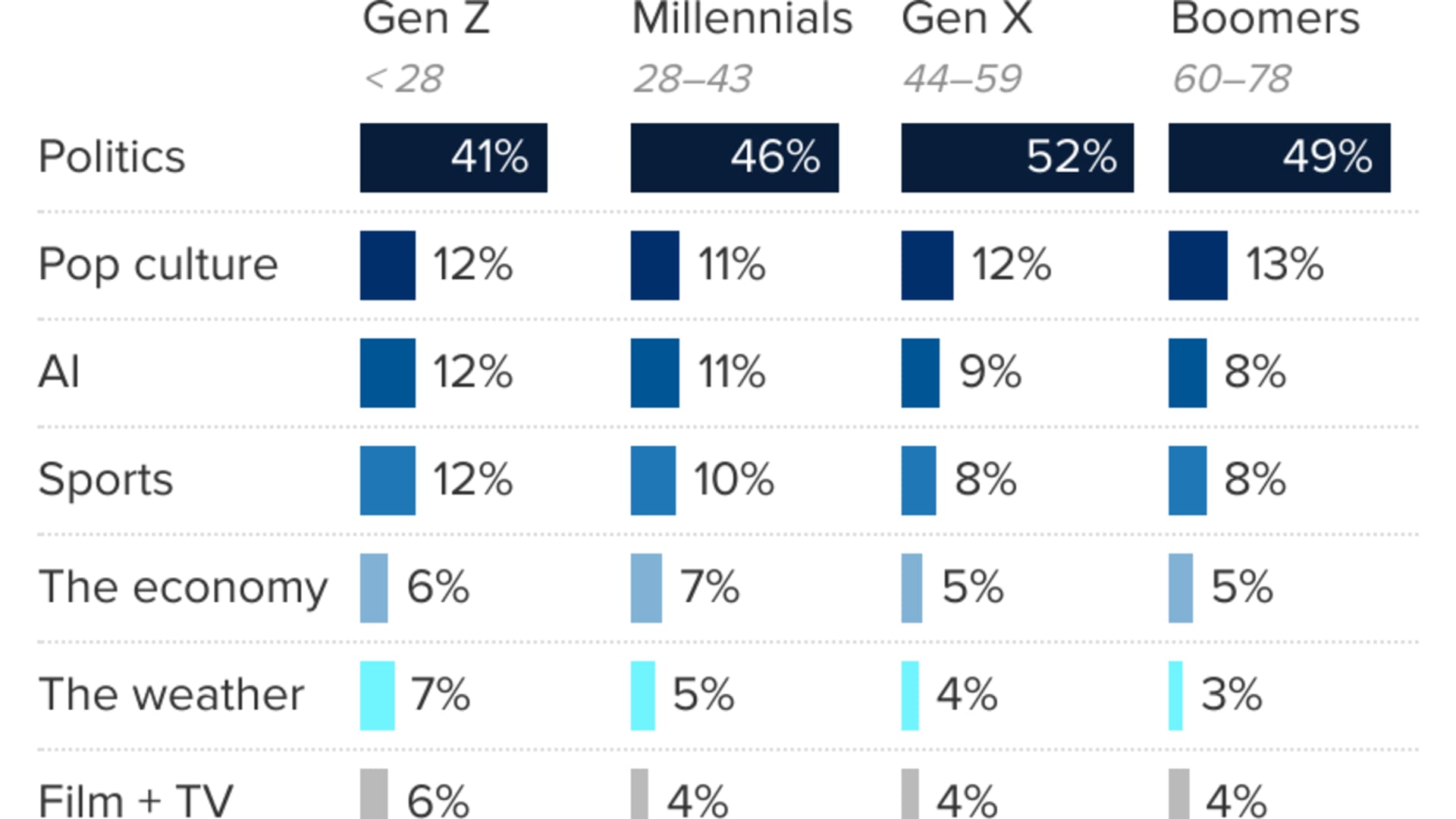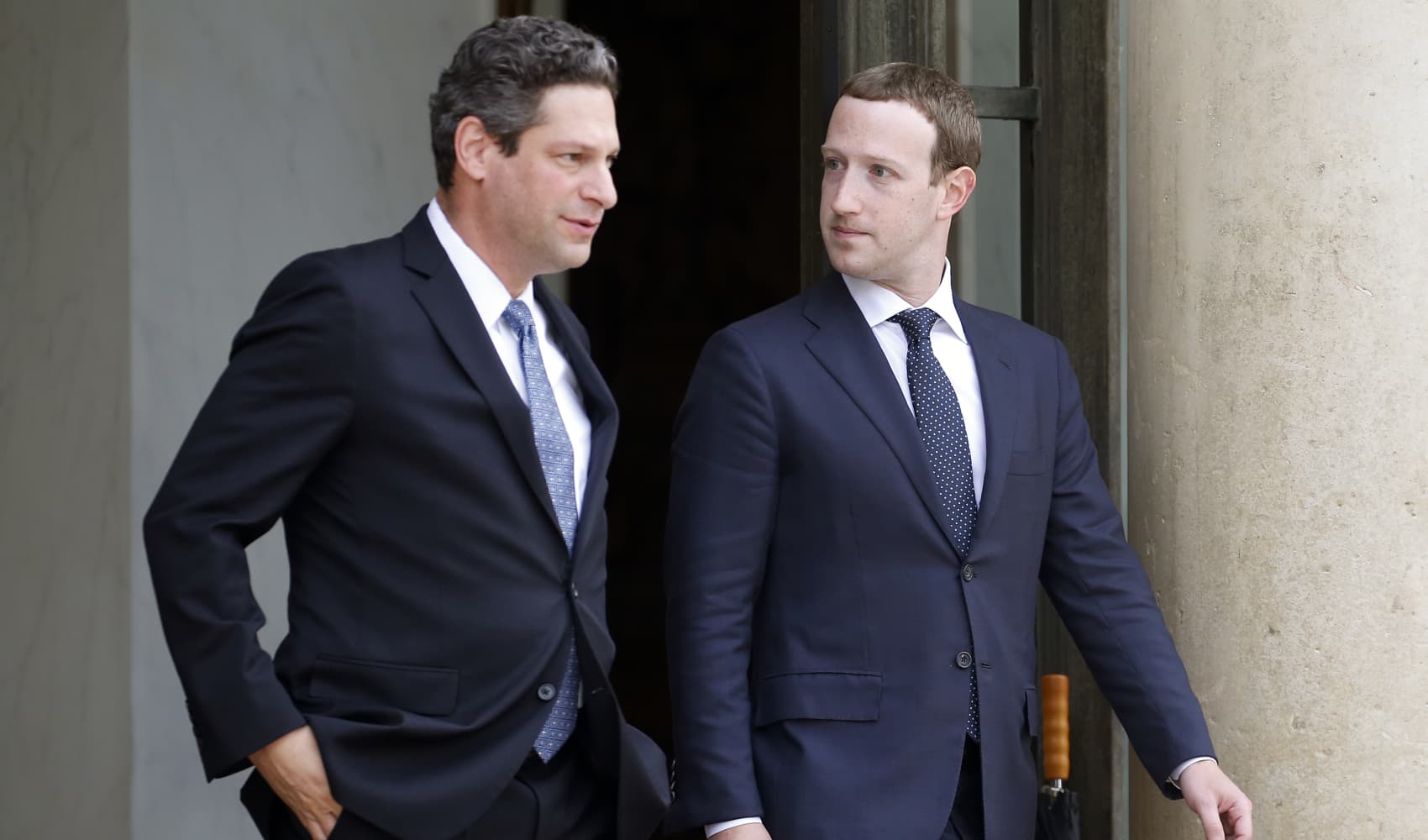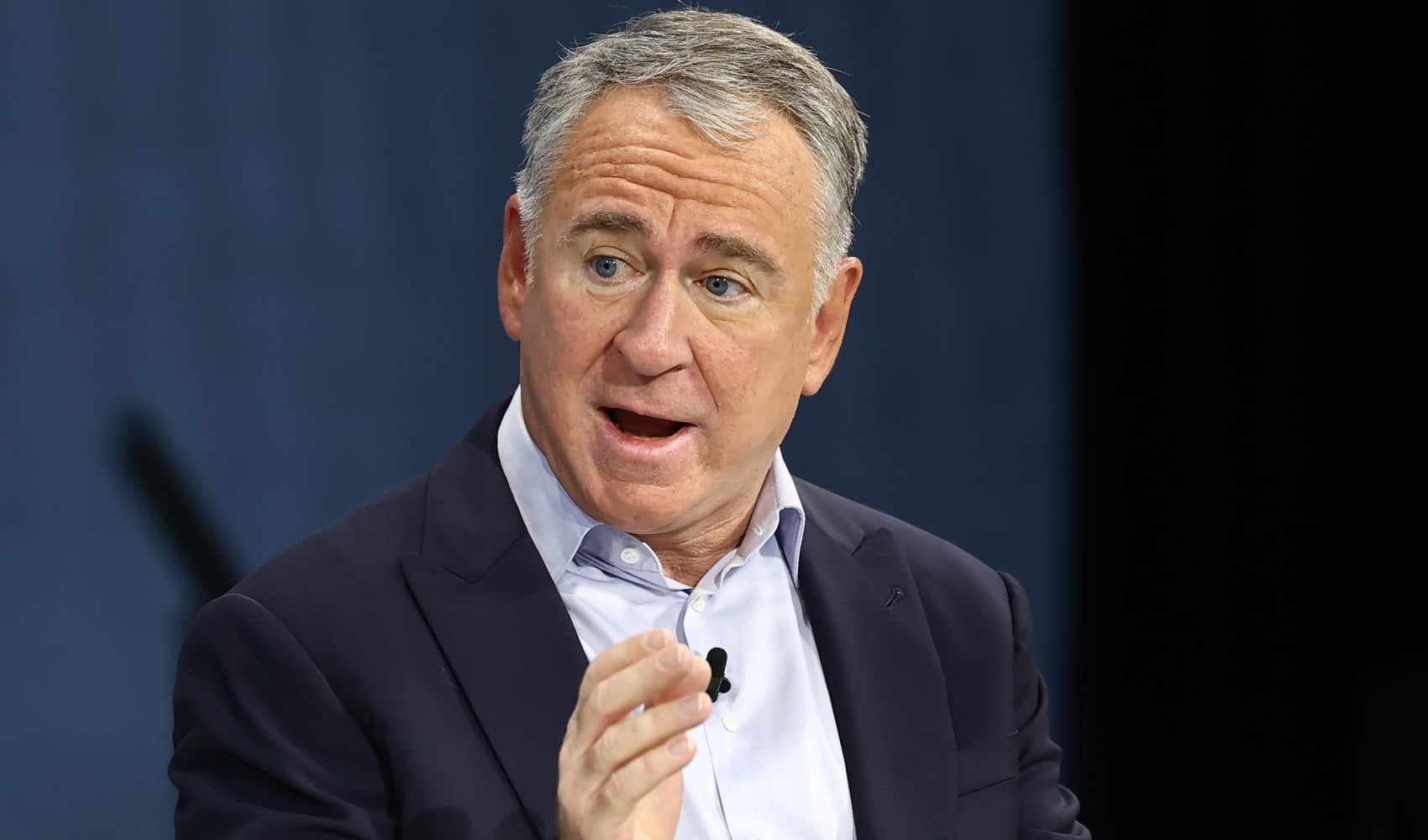
- Given the choice to ban a single topic from being discussed at work, just under half of American workers polled by CNBC and SurveyMonkey say they would choose political conversations.
- The debate over what's acceptable for office conversations comes as more workers than ever are back in the office, with 82% on a job site most or all of the time, according to the survey.
- Younger workers, especially workers 18 to 24, are the least likely to want to keep politics out of the office.
Office politics have always been a point of frustration for workers, but now it's politics in the office that's getting under the skin of many American workers.
In an era during which more workers have felt emboldened to challenge bosses over politics — with the recent Google worker protests and arrests a prime example — just under half of American workers polled by CNBC and SurveyMonkey say they would support a ban on political conversations at work.
Given the choice to ban a single topic from being discussed at work, 47% of workers overall choose politics, four times higher than other topics including pop culture (12%), AI (10%), and sports (9%), according to the bi-annual CNBC | SurveyMonkey Workforce Survey.
Get top local stories in Southern California delivered to you every morning. >Sign up for NBC LA's News Headlines newsletter.
Google CEO Sundar Pichai recently weighed in on the topic himself, writing in a company blog post that debate is healthy and can serve innovation, but at a time of intense focus on AI and its competitive threats, "this is a business, and not a place to act in a way that disrupts coworkers or makes them feel unsafe, to attempt to use the company as a personal platform, or to fight over disruptive issues or debate politics."

As protests over the Israel-Gaza war embroil major college campuses, including the free speech rights of students and academic staff, and led to the shutdown of the Columbia University campus earlier this week, the survey shows generational nuance on the topic. Younger workers show less hesitancy toward political discussions, with 41% of Gen Z workers saying they would choose to bar any political discussions at work. That's lower than millennial workers (46%), Gen X workers (52%), and boomers (49%). The corresponding figure goes down to 39% for 18-24-year-olds specifically.
The youngest workers are generally the ones mostly likely to lack enthusiasm for their current work roles, the survey also found, a trend that has been dubbed "resenteeism" at work, but at the same time the results show they remain ambitious and the overwhelming majority (92%) say they value engaging work.

"The unique behaviors of Gen Z to value meaningful work and embrace politics in the workplace may signal the start of a generational shift in workplace culture," Lara Belonogoff, senior director of brand management and research at SurveyMonkey, said in a statement.
Money Report
The CNBC | SurveyMonkey online poll was conducted April 3-5 among a national sample of 5,993 workers in the United States.
In recent years, the percentage of workers who say politics has impacted them in the workplace has risen, according to research from the Society for Human Resource Management (SHRM). It found in a 2022 survey that 26% of workers said they personally experienced either positive or negative treatment at work related to politics. In 2019, only 11% of workers cited politics as a factor in treatment.
Workers do not have First Amendment protections inside the workplace that are equal to those outside of it, and employers have the ability to place "reasonable restrictions" on political discussions during work time. Some high-profile CEOs have been outspoken with their own political beliefs, as well as what they think about opposing beliefs of workers below them.
Political discussion related to work conditions are a different legal issue — an important distinction during a time of rising unionization efforts, and corporate management attempts to defeat them, sometimes in violation of the National Labor Relations Board. Under the National Labor Relations Act, Section 7, employees have the right to act together to improve wages and working conditions, and restrictions on speech do not necessarily carry over to break periods or break rooms.
Similar to the CNBC survey, a recent worker poll from ResumeHelp found that half of workers think political conversations hurt the workplace and don't engage in them, while 45% regret having these conversations. Younger workers are more likely to have political conversations in the office, and be comfortable with it, its survey found.
The CNBC survey finds differences in the level of support for a workplace ban on politics by party identification, with Republican respondents the least likely to support a ban, at 42%. Independents (54%) and Democrats (50%) were more likely to cite politics as their choice.
Women (50%) were also slightly more likely than men (45%) to voice support.


By race, white and Black Americans, at 49%, showed the highest levels of support for a ban on political talk at work. But among the decision makers — C-suite executives, owners, and vice presidents — support was much lower, at 39%, than among managers (48%) and individual contributors (49%)
Amid the intense political debates taking place, more workers are back in offices — most of the time. The CNBC survey finds that 82% of workers say they are back in the office fully or most of the time — and most workers (70%) are okay with this work schedule. Meanwhile, the percentage of workers who are fully remote continues to decline, down from 20% to 16% over the past two surveys.






